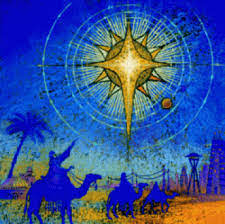
Happy New Year! the ball dropped in Times Square to a socially distanced crowd – a handful of carefully selected essential workers and their families- at an event that normally draws tens of thousands of revelers. The coronavirus didn’t miss a beat and continued to set records of infection and death across the country. The divisions in our nation continues to cast its stubborn pall as conflict continue to drive us apart. We yearn for the day when we stand united.
All these hopes and concerns are at the forefront today as we celebrate the feast of the Epiphany. Wednesday is officially the last day of the Christmas season. In the ancient church, Epiphany was the most important day of observance, not Christmas. It is the feast of light. The in-breaking of revelation.
The gospel lesson for Epiphany is always the story of the journey of the Wise men, the Magi, some even call the Three Kings, from the Far East, bringing gifts to bear to the child Jesus: gold, frankincense and myrrh. But Epiphany also brings us gifts to carry into our new year.
The gift of epiphany to us, simply put, is that Jesus is our Light. He is the “Bright and morning Star” (Rev. 22:16), “the Light of the world,” (John 8:26) that shines in our heart when we look within. But Jesus’ light is no ordinary light. The rabbinic writers in the Babylonian Talmud, the earliest commentaries on the Hebrew scriptures, talked of a hidden, primordial light of creation, light that God used on the first day of creation, “Let there be light,” is not the same light we experience as coming from our sun; after all, the sun and the moon are not created until day four. Instead, this first, primordial light was unique to God alone. Rabbinic tradition teaches us that this hidden light will shine once again during the days of the Messiah. So this primordial light of creation is Jesus: as the evangelist John declares: Through him all things were made (John1:3); and Psalm 36 tells us: “in your light we see light.” In Jesus, Light Incarnate, Light in which we find light, we see how we are to live. To love. To forgive. To be community.
Scientists tell us we that life as it currently exists cannot live and grow properly without light. We cannot see properly without light. We would not have energy without light. So it is with Jesus, we cannot live or grow or have energy without Jesus.
We too are created by light and are light – light to the world (Matt. 5:14), Jesus says. He further instructs us: “let your light shine before all, that they may see your good deeds and praise your Father in heaven. (Matt. 5:16).
And therein lies our challenge and choice. Epiphany gives us the gift of choice. In our lesson from Isaiah, we learn that the people of Israel have been released from captivity from exile to Babylon. These people had been in exile for fifty years – a generation had passed, a new one begun. They were permitted to return. What did they find? The Jewish cities were in rubble and their homes were in rubble and their farms were in rubble and their temple was in rubble and their lives were in rubble --it was very much a new beginning – too much time had gone by to simply resume life as it had been. They would have to create new lives. But Isaiah writes with words of such hope: “Arise, shine, your light has already come…Nations shall come to your light!” In the midst of trouble and despair, the people were directed to light. We can find light, in the choices we make about how we live. Light heals and rebuilds. And so, the people of Israel rebuilt. And their light was renewed. And through this light, the country was healed.
So, epiphany leaves us precious gifts to begin our year: Jesus is our Light – a light of creation, salvation and growth. We too are creatures of light. We are meant to shine. But we too have a choice. will we take the easy way or the right way? Will we wallow in despair in the rubble created by COVID19, in the rubble caused by sin and false idols that seek to entice us, or will we choose light, compassion, and righteousness?
As I recently heard: Hello, welcome to flight 2021. We are prepared to take off into the New Year. Please make sure your attitude and blessings are secured and locked in an upright position. All self-destructive devices should be turned off. All negativity hurt and discouragement should be put away. Should we lose Altitude under pressure, reach up and pull down a Prayer. Prayers will automatically be activated by faith. Once your faith is activated you can assist other passengers. There is no baggage allowed on this flight. The captain – God – has cleared us for takeoff.
Destination Greatness. So rise - let your light shine!
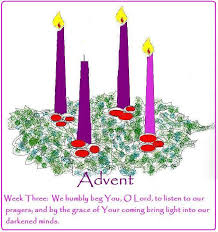
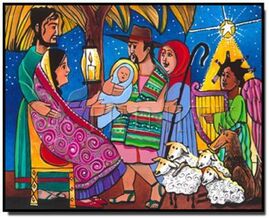
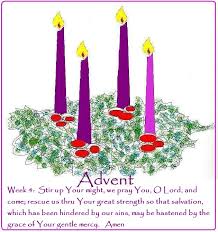
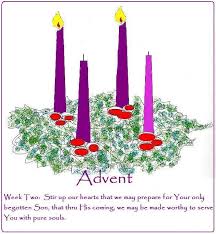
 RSS Feed
RSS Feed